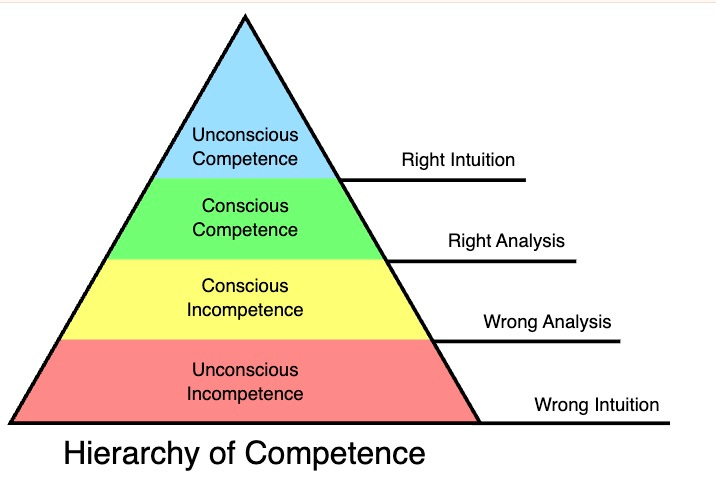I’m not a golfer, though I have golf clubs that I bought 20+ years ago, have played a few rounds of golf, and taken a few lessons. I grew up in a family that golfs, and my husband and son golf, so I’ve considered whether I should start getting more comfortable with the sport so I can go out periodically and enjoy the experience.
This winter, my husband shared a flyer for a 6-week women’s golf clinic at a course less than 10 minutes from home. It felt like a sign that I should give it a try.
Five sessions in, I’ve hit more balls than I probably have over the decades of having clubs, but I am still not good or consistent.
And that’s ok.
I wish I could have said that I walked away from the first or second session and felt like I was so much better, but that was not the reality, and probably a pretty unrealistic expectation.
The consistent message to me from the golf pro is “extension without tension” in reference to my back swing. I hear and understand the words when he says it, but the execution is challenging.
When I think about it too much, my swing isn’t natural. I’m trying to do it perfectly, and then I miss the ball or create a divot where my ball was.
I recognize I need to practice a lot more so that what feels unnatural today feels more natural, and I don’t have to think about every step in the process.
I think the lesson applies to how we lead ourselves as well.
The goal is to get to the point where we don’t have to think about every action… it just comes naturally.
The idea of unconscious competence.
My colleague, David McLean, talked about this on LinkedIn yesterday, sharing this visual, so it was interesting to see the tie.
Picture from Wikipedia. This file was derived from: Competence Hierarchy adapted from Noel Burch by Igor Kokcharov.jpg by Kokcharov, CC BY-SA 4.0, https://commons.wikimedia.org/w/index.php?curid=60343464.
With my golf example, I don’t think I ever started at the bottom, having the assumption that I could go out and play golf well. However, in work situations, I know I have done that, thinking that what others were doing was easy and that when I started doing it, I was doing it well. Often, our first big mistake or a light reprimand from a boss, colleague, or mentor is what it takes to become conscious of our incompetence.
I have three thoughts for you to consider this week:
Outline which tiers you are at for your primary personal and work activities.
Which ones are you focused on getting to the top layer, and what efforts will that take?
Which ones are you okay landing in yellow or green?
I know that with golf, I’m ok never getting to the top tier because I know I don’t want to invest that much effort into getting good.
Knowing where we want and need to put intentional effort allows us to more effectively manage our energy, which is critical in living an endurance life without finish lines in sight.
I’d love to hear some of your thoughts on this.
Thoughts for Reflection
“We are what we repeatedly do. Excellence, then, is not an act, but a habit.” — Will Durant (summarizing Aristotle)
“Amateurs practice until they get it right. Professionals practice until they can’t get it wrong.” — Unknown
“Don’t confuse activity with effectiveness.” — John Wooden
Announcements
📣 Don’t Miss This Session: The May Leadership Endurance Round Table will be on Wednesday, May 21st. Based on your questions from the Career Endurance post, we will tackle this topic since we all need a career endurance plan and understand how we best support our teams. You can register for this session and future ones with this link.
Leadership Learning Content
Podcasts
If you missed past podcast episode recommendations, you can find them here.
Looking for other valuable resources we offer? Check out all of the resources here.
If you want other resources to read or watch, check out My Favorite Things list here.
If you missed this week’s daily content, you can find the notes here or see below for individual notes:
Monday:
Tuesday:
Wednesday:
Friday:
You can also find additional daily content from me on LinkedIn.





